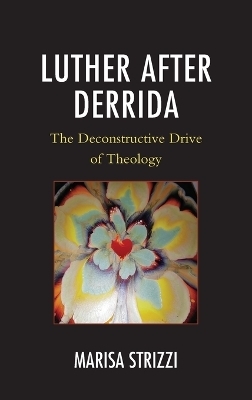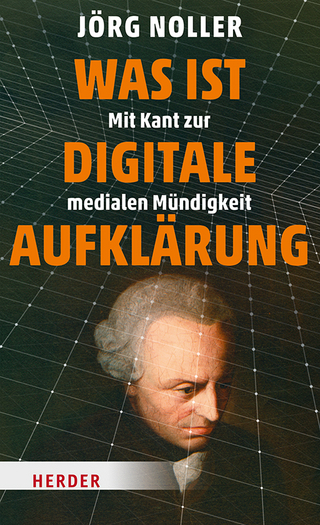
Luther after Derrida
The Deconstructive Drive of Theology
Seiten
2023
Lexington Books/Fortress Academic (Verlag)
978-1-9787-1392-5 (ISBN)
Lexington Books/Fortress Academic (Verlag)
978-1-9787-1392-5 (ISBN)
In Luther after Derrida, Marisa Strizzi argues that Luther’s theology has a significant deconstructive drive and, through the thorough reading of texts, illustrates the ways in which such theology is interactive with the thought of Derrida.
This book creatively engages Martin Luther’s theology and Jacques Derrida’s deconstruction in a systematic theological enterprise. Guided by the general question of how to think about theology in postmodern times within a given tradition, Marisa Strizzi meticulously follows deconstruction at work, focusing on distinctive theological elaborations. She argues that Luther’s theology has a significant deconstructive drive and, through the thorough reading of texts, illustrates the ways in which such theology is interactive with the thought of Derrida. Intersections, echoes, and mirrors allow a happy exchange in which the vital theological topics of Luther meet key deconstructive motifs. Thus, the cross, the Deus absconditus, scriptura, fides, gratia and Christo encounter khōra, écriture, the gift, faith, the messianic and autoimmune sovereignty. Strizzi solidly sustains that the deconstructive reading of theological traditions proves to be a critical constructive way of honoring them.
This book creatively engages Martin Luther’s theology and Jacques Derrida’s deconstruction in a systematic theological enterprise. Guided by the general question of how to think about theology in postmodern times within a given tradition, Marisa Strizzi meticulously follows deconstruction at work, focusing on distinctive theological elaborations. She argues that Luther’s theology has a significant deconstructive drive and, through the thorough reading of texts, illustrates the ways in which such theology is interactive with the thought of Derrida. Intersections, echoes, and mirrors allow a happy exchange in which the vital theological topics of Luther meet key deconstructive motifs. Thus, the cross, the Deus absconditus, scriptura, fides, gratia and Christo encounter khōra, écriture, the gift, faith, the messianic and autoimmune sovereignty. Strizzi solidly sustains that the deconstructive reading of theological traditions proves to be a critical constructive way of honoring them.
Marisa Strizzi is professor of theology at the Ecumenical Network for Theological Education (REET) and at the Institute for Contextual Pastoral Studies (IPC) in Buenos Aires, Argentina.
Part I. Tremors
I.1 Reading Luther after Derrida
I.2 A Certain Strategy
I.3 On Metaphysics
I.4 Deconstructive Readings
Part II. Subversion and Displacement
II.5 Knowing Otherwise
II.6 The posteriora Dei
II.7 Otherwise than Knowing
II.8 The Deus absconditus
Part III. Four Deconstructive Gaps
III.9 Sola scriptura: Nothing Outside the Text?
III.10 Sola fide: “Yes, yes…”
III.11 Sola gratia: The Aneconomy of the Gift
III.12 Solus Christus: Something Happens to God
Part IV. The Deconstructive Drive of Luther’s Theology
IV.13 A happy exchange
| Erscheinungsdatum | 06.04.2023 |
|---|---|
| Sprache | englisch |
| Maße | 157 x 236 mm |
| Gewicht | 522 g |
| Themenwelt | Geisteswissenschaften ► Philosophie |
| Geisteswissenschaften ► Religion / Theologie | |
| Sozialwissenschaften | |
| ISBN-10 | 1-9787-1392-4 / 1978713924 |
| ISBN-13 | 978-1-9787-1392-5 / 9781978713925 |
| Zustand | Neuware |
| Informationen gemäß Produktsicherheitsverordnung (GPSR) | |
| Haben Sie eine Frage zum Produkt? |
Mehr entdecken
aus dem Bereich
aus dem Bereich
wie Philosophie uns helfen kann, unseren Weg zu finden
Buch | Hardcover (2023)
dtv Verlagsgesellschaft
CHF 39,90
mit Kant zur medialen Mündigkeit
Buch | Softcover (2024)
Verlag Herder
CHF 27,95


